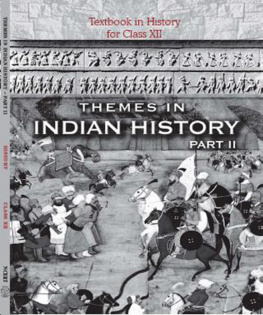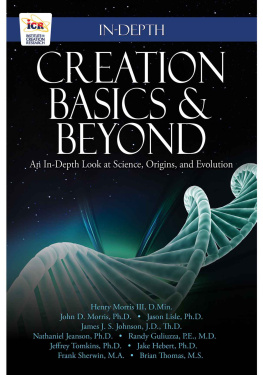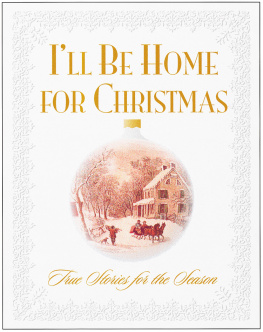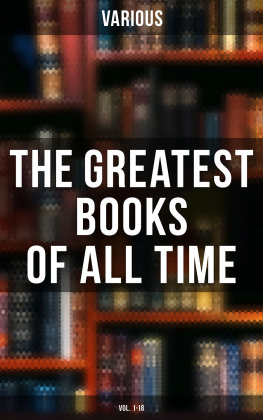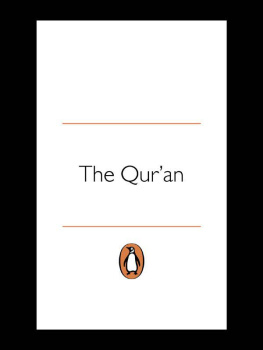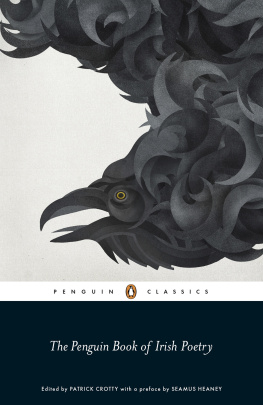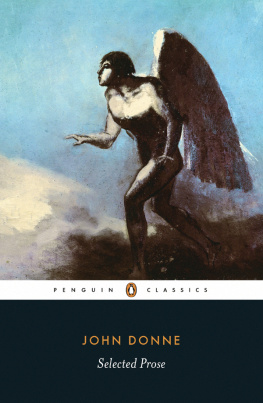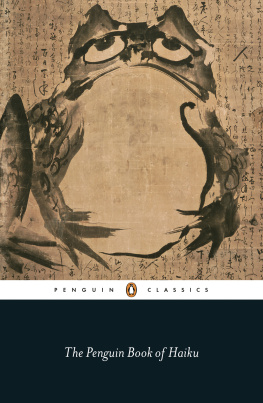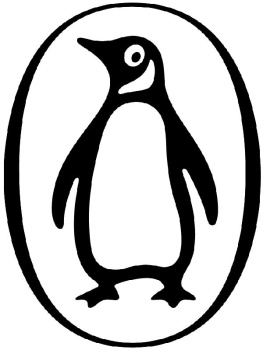Various - The Penguin Book of French Poetry: 1820-1950; With Prose Translations (Penguin Classics)
Here you can read online Various - The Penguin Book of French Poetry: 1820-1950; With Prose Translations (Penguin Classics) full text of the book (entire story) in english for free. Download pdf and epub, get meaning, cover and reviews about this ebook. year: 1994, publisher: Penguin Classics, genre: Detective and thriller. Description of the work, (preface) as well as reviews are available. Best literature library LitArk.com created for fans of good reading and offers a wide selection of genres:
Romance novel
Science fiction
Adventure
Detective
Science
History
Home and family
Prose
Art
Politics
Computer
Non-fiction
Religion
Business
Children
Humor
Choose a favorite category and find really read worthwhile books. Enjoy immersion in the world of imagination, feel the emotions of the characters or learn something new for yourself, make an fascinating discovery.
- Book:The Penguin Book of French Poetry: 1820-1950; With Prose Translations (Penguin Classics)
- Author:
- Publisher:Penguin Classics
- Genre:
- Year:1994
- Rating:3 / 5
- Favourites:Add to favourites
- Your mark:
- 60
- 1
- 2
- 3
- 4
- 5
The Penguin Book of French Poetry: 1820-1950; With Prose Translations (Penguin Classics): summary, description and annotation
We offer to read an annotation, description, summary or preface (depends on what the author of the book "The Penguin Book of French Poetry: 1820-1950; With Prose Translations (Penguin Classics)" wrote himself). If you haven't found the necessary information about the book — write in the comments, we will try to find it.
Various: author's other books
Who wrote The Penguin Book of French Poetry: 1820-1950; With Prose Translations (Penguin Classics)? Find out the surname, the name of the author of the book and a list of all author's works by series.
The Penguin Book of French Poetry: 1820-1950; With Prose Translations (Penguin Classics) — read online for free the complete book (whole text) full work
Below is the text of the book, divided by pages. System saving the place of the last page read, allows you to conveniently read the book "The Penguin Book of French Poetry: 1820-1950; With Prose Translations (Penguin Classics)" online for free, without having to search again every time where you left off. Put a bookmark, and you can go to the page where you finished reading at any time.
Font size:
Interval:
Bookmark:
 CLASSICS
CLASSICSOF FRENCH POETRY
18201950
After secondary education at the Bishop Gore Grammar School in Swansea and a first degree at the University College of Wales, Aberystwyth, William Rees continued his studies in French literature and theatre at the University of Exeter and at St. Catherines College, Oxford. He has spent most of his working life since then as a teacher and housemaster at Eton College, Windsor. His translations of Antoine de Saint-Exuprys Wind, Sand and Stars and Flight to Arras are published by Penguin.
Selected, translated
and introduced by
PENGUIN BOOKS
PENGUIN BOOKS
Published by the Penguin Group
Penguin Books Ltd, 80 Strand, London WC2R 0RL , England
Penguin Putnam Inc., 375 Hudson Street, New York, New York 10014, USA
Penguin Books Australia Ltd, 250 Camberwell Road, Camberwell, Victoria 3124, Australia
Penguin Books Canada Ltd, 10 Alcorn Avenue, Toronto, Ontario, Canada M4V 3B2
Penguin Books India (P) Ltd, 11 Community Centre, Panchsheel Park, New Delhi 110017, India
Penguin Books (NZ) Ltd, Cnr Rosedale and Airborne Roads, Albany, Auckland, New Zealand
Penguin Books (South Africa) (Pty) Ltd, 24 Sturdee Avenue, Rosebank 2196, South Africa
Penguin Books Ltd, Registered Offices: 80 Strand, London WC2R 0RL , England
www.penguin.com
This selection first published as French Poetry 18201950 1990
Reprinted under the present title 1992
13
This selection copyright William Rees, 1990
The acknowledgements on pp. xxxvii-xli constitute an extension of this copyright page
Except in the United States of America, this book is sold subject to the condition that it shall not, by way of trade or otherwise, be lent, re-sold, hired out, or otherwise circulated without the publishers prior consent in any form of binding or cover other than that in which it is published and without a similar condition including this condition being imposed on the subsequent purchaser
978-0-14-193740-3
For Jane, Eleanor and Christopher


I would like to thank, for their help and encouragement during this project: my colleague Jean-Paul Dubois, an invaluable linguistic sounding-board; the Librarians and their staff at the Taylor Institution, Oxford, and at the University of Victoria, British Columbia; Stuart John of UCW Aberystwyth, who kindled the spark long ago; Dr John Greene of the University of Victoria, BC; Martin Hammond; Donald McFarlan; Paul Keegan; Nicholas Wetton, who cleared the permissions; Warren Brown of the Cirrus company, Victoria, BC; Dr Bernard McGuirk; the many friends and colleagues who have helped with references and obscurities of all kinds, including Dr Michael Atkinson, Philippe Delaveau, Dr Keith Gore, Christopher Robinson, Paul Quarrie, Dr Angela Slater, Dick Haddon, Anthony Ray, Dr Malcolm Smith-Walker, Dr Peter Cogman, John King, Dr Stephen Spurr, Fr Peter Knott SJ, Francis Dalvin and the late Revd Terence Davies; finally my wife Jane for her tireless proof-reading and support, and my children for their tolerance and their enthusiastic research assistance.

France in the nineteenth and twentieth centuries offers an unusually rich and rewarding field for students and lovers of poetry. It is an intense battleground of diverse aesthetic ideas, and yet also presents fascinating lines of continuity and patterns of influence. Through Eliot and Pound above all, those influences have extended beyond the borders of France into the work of many modern poets writing in English. The immense reading assignment preceding the compilation of this book has been partly a labour of love, reopening all kinds of familiar and half-forgotten doors, but it has also revealed many new and unsuspected delights, and kindled many fresh enthusiasms.
This anthology of fifty-six poets writing in French between 1820 and 1950 departs a little from the Penguin tradition. Each set of poems is preceded by an introduction to their author, his life and his affinities, his aesthetics and his place in the evolution of poetry. Certain significant literary movements are also signalled and briefly characterized. The tendency of -isms to suck in individuals who deserve to be treated as individuals is well known, and I hope that patterns of adherence and independence are clear. If the book is read in chronological order, a pattern of development should emerge without the need for a lengthy historical preamble, and those who enter the world of French poetry at an arbitrary point should find enough signposts.
Before the challenge of translation can be met, the process of selection presents some stimulating and sometimes agonizing problems. Which poets, and why? Which poems, and why? Is it possible to determine universal and consistent criteria for choice, or must they be pragmatic? Should selection be on a greatest hits basis, or should an editor consciously, even iconoclastically, seek less polished and less well-known works, juvenile and senile productions, and throw out the most prestigious items on the grounds that they can take care of themselves? Or is it important to represent all periods in a poets career? Given both limited space and the awareness that such an anthology may have some influence in shaping literary perceptions, how is it possible to reconcile the claims of interesting minor poets with the need to ensure an adequate and undistorted representation of the work of established giants? Should all literary movements be represented, however undistinguished or ephemeral? Should the maximum possible number of poets perhaps be included in a smorgasbord approach that would provide no real landmarks, and no implicit evaluation? Where is the line to be drawn, if at all, in the incorporation of prose-poems?
There are many tightropes to be walked here. Experience has taught me that only the pragmatic approach works, for the conditions surrounding the editorial balancing act alter from poet to poet and period to period. Instinct and personal predilection must come into play, as well as an awareness of the judgements of posterity; enthusiasm and objectivity have to find a fresh working relationship in each individual case. To take as an example the question of representing all phases of a poets career: only a masochist (or a dedicated researcher) would want to read now the verse which Lamartine or Musset trundled out long after the emotional traumas that produced their best work, or share Verlaines descent into self-parodying mediocrity; it seems essential on the other hand to perceive the linear evolution of Laforgue or Rimbaud, and the imaginative breadth of Baudelaire or Apollinaire.
Many fine poets, of course, have had to be excluded. The names of a good number of them are mentioned in the chapters on Romanticism, on the Parnassians, on Symbolism, on Cubism, and on the Surrealists. Choices and compromises have to be made: Lautramont, for example, must do duty for the whole satnic, self-destructive fringe of Romanticism; Anna de Noailles and Catherine Pozzi, briefly, for the relative abundance of women poets in the early decades of this century; Cendrars for the cosmopolitan spirit of compulsive travelling (to the exclusion of Larbaud, a dilettante by comparison with Cendrars, whose work blazes like his name with love, anguish, irony, originality of perception and of technique). That dated and clumsy optimist of the age of technology, Jules Romains, is similarly eclipsed by the fire of Verhaerens vision. And no doubt certain inclusions will be controversial, but sometimes it is important to include a poet scorned by some of his successors, yet whose work nevertheless is symptomatic of something interesting in his times.
Font size:
Interval:
Bookmark:
Similar books «The Penguin Book of French Poetry: 1820-1950; With Prose Translations (Penguin Classics)»
Look at similar books to The Penguin Book of French Poetry: 1820-1950; With Prose Translations (Penguin Classics). We have selected literature similar in name and meaning in the hope of providing readers with more options to find new, interesting, not yet read works.
Discussion, reviews of the book The Penguin Book of French Poetry: 1820-1950; With Prose Translations (Penguin Classics) and just readers' own opinions. Leave your comments, write what you think about the work, its meaning or the main characters. Specify what exactly you liked and what you didn't like, and why you think so.



